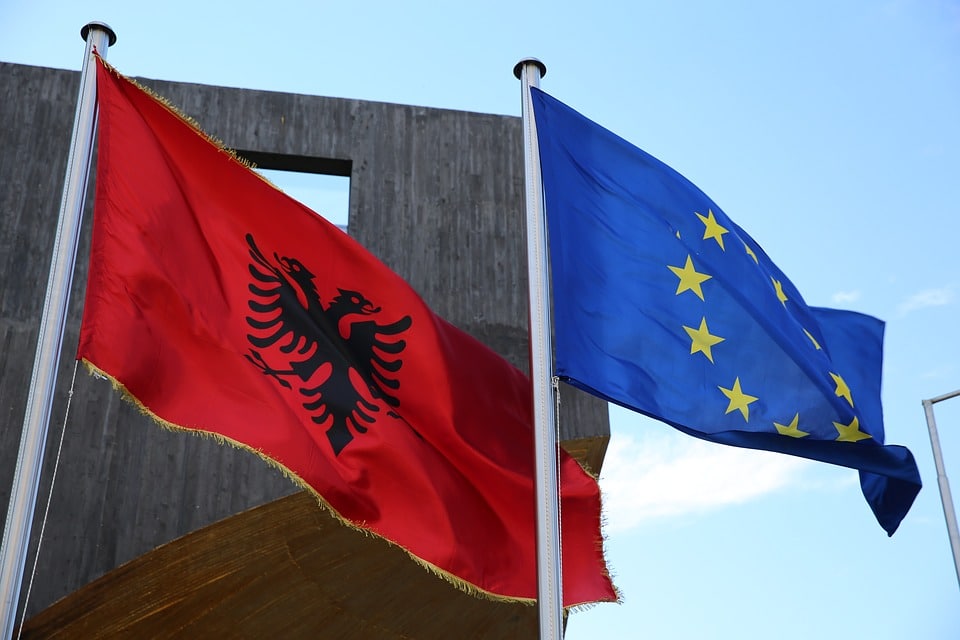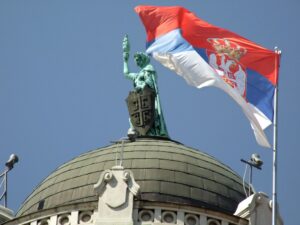With Albania and Macedonia undergoing reforms, both countries have long been anticipating the EU Council Meeting of June 28-29 that would decide on whether to open EU accession talks with either. On 26 June, EU Ministers announced after a preparatory meeting in Luxemburg that 72 hours of debate had resulted in the decision to postpone the topic of accession talks to June 2019, given that the EU has not been able to come to a unanimous agreement on the issue.
Are Macedonia and Albania Ready to open accession negotiations?
The issue at hand is that of opening accession negotiations with both Albania and Macedonia. In the course of these negotiations, both countries’ progress would be closely monitored, and actual accession to the European Union would not yet be a given. Currently, two other states in the region – Montenegro and Serbia – are conducting accession negotiations. So far, Albania is undergoing a vetting process that submits judges from all instances to background checks and asset monitoring in order to fight corruption. In an official statement, Michael Roth, Minister of State for Europe at the Federal Foreign Office of Germany, said that he highly appreciated “the efforts undertaken by both Albania and the FYR of Macedonia to strengthen the rule of law, independence of judiciary, fight against corruption.” Johannes Hahn, Commissioner for European Neighborhood Policy and Enlargement Negotiations, emphasized the importance of accession talks, as they would give a “positive signal” to the whole Western Balkan region and reward the countries for their successes, while at the same time guiding them with reform plans.
But although European Parliament Rapporteur on Albania, Knut Fleckenstein (S&D Group in the EP), had previously stated that there is consensus in the European Parliament that preconditions for opening negotiations have been met, and announced his full support until “we are united in the EU”, several EU members do not agree that accession talks are the best way to proceed. Denmark, France and The Netherlands, for instance, proclaimed that they would veto accession talks at the announced Council Meeting of June 28-29. Dutch Foreign Minister Stef Blok acknowledged that both countries had made “important progress”, but highlighted that ” they are not there yet.”
Specific Conditions for Macedonia
As a result of the preparatory meeting in Luxemburg, the EU member states decided on several key conditions that have to be met in order for accession talks to launch in June 2019. The conditions include active investigations into verdicts in high-level corruption cases as well as reforms in waste management, judiciary, intelligence and security sectors and public administration. The conditions have been called “strict”, and are embedded in a concrete calendar and guidelines.
The EU pointed out towards Macedonia the importance of implementing the June 12 deal with Greece that settles a 27 year old dispute over the name of Macedonia. Athens and Skopje had agreed on the name Republic of North Macedonia (Severna Makedonija in Macedonian) in a deal that would preserve the Macedonian identity, while making a clear distinction with the Greek province bearing the same name. Greece had previously continuously blocked any efforts of Macedonia to join the EU and NATO. However, Macedonian President Gjorge Ivanov subsequently refused to sign the deal, calling it a “criminal act” that violates the Balkan country’s constitution by making Macedonia dependent on a third party. The deal will now be sent back to the parliament who had previously unanimously agreed to pass it; if parliament again decides to pass the deal, the president cannot veto it a second time. The name deal, however, faces a second hurdle, as it must also be put to a popular referendum. The government had hoped to have a date to open accession negotiations before the referendum takes place in September 2018.
Mixed Reactions and Interpretation of the Decision
The decision by the EU provoked mixed responses from the Albanian and Macedonian political world. While the heads of state of both governments welcomed the decision and saw it as a “conditional green light”, opposition parties claimed the decision only highlighted the failure of both governments. Albanian President Meta said that the decision must be welcomed with responsibility, and that Albania needs to appreciate the positive will of the European Commission. Through the postponement, Meta said, the EU sends the signal that the doors to the EU remain open, and will be accessible based on clear criteria. Macedonia’s Prime Minister Zoran Zaev agreed, saying the decision offered a major “motivation” for achieving a “European Macedonia” and was thus great news for the country.
Criticism was made public especially in Albania. Democratic Party Chairman Lulzim Basha interpreted the postponement of the decision as a sign that crime and corruption are “holding [Albania] hostage”. In a press release, he warned that “[if] we don’t fight crime and corruption, we will face another negative decision.” Deputy Chairman of the Socialist Movement for Integration, Luan Rama, accused the government for its reaction towards the decision. “Our government has chosen crime,” he said. “The government is making devilish attempts to make it look like a victory, when in reality it is our loss.” When Albanian Prime Minister Rama responded that the opposition were “sadists” by undermining the government for an imaginary failure”, the Deputy Chairman retorted that “blaming the opposition for the EU’s decision is a mockery.”
Should Albania and Macedonia manage to fulfil the conditions set by the EU, a unanimous agreement will be needed by EU member states to open accession talks. It is likely that the dissent within the preparatory meeting was so large that debates would have potentially carried on for more than the 72 hours, becoming a desperate attempt to expand. The Commissioner for European Neighborhood Policy, Hahn, in fact wrote on Twitter that the decision to postpone the debate to a point when criteria would be met more clearly had been “crucial for the EU’s own credibility”.
Sources
Albanian News I Albanian News II Albanian News III Albanian News IV Albanian News V Balkan Insight European Forum Exit I Exit II Image Source RFERL I RFERL II RFERL III



